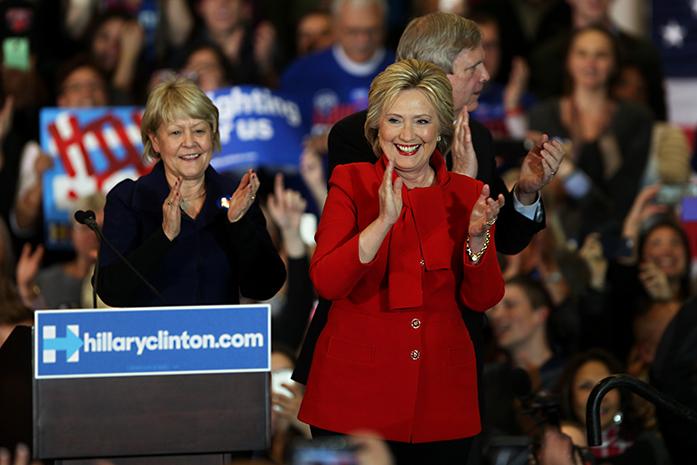Jace Brady
[email protected]
The United States is on the precipice of nominating two of the most unpopular nominees in the history of U.S. presidential elections. Donald Trump has an unfavorable rating of 67 percent, which would make him the most unpopular nominee of all time if he manages to clinch the Republican nomination. Hillary Clinton is not far behind with a 58 percent unfavorable rating. Despite the reality that a large majority of Americans dislike these individuals, one of them is likely to be the next president.
Our electoral system has created an environment in which only major party candidates have a true chance of winning major elections. Additionally, American society has determined that it is an expectation to cast a ballot for potentially terrible candidates, or you have no right to complain about the direction of the country. Yet, when the choices presented by corrupt party- nomination systems are so disdained by the electorate, a non-vote may speak louder than a vote.
Every election, politicians hope for historic turnout so that in their victory they can claim a mandate from the people and the ability to use the political capital that follows suit. By refusing to vote, we can rob the next president of this power and proclaim to the system that we will not accept the nominees that are produced through their corruption.
So if Trump and Clinton are the nominees, I will spend Nov. 8 sitting at home making my voice heard by remaining silent. I refuse to vote for a candidate simply because he managed to garner 37 percent of the primary vote or because she collected more than 700 super delegates through backroom deals. As long as we continue to vote for candidates with whom we disagree simply because we view them as the lesser of two evils, we will continue to lose our voice in choosing our nominees. This election is potentially the time to not show up in record numbers.
If we can successfully bring the parties to the realization that we will no longer give their candidates power, we can begin to make changes to the nominations process. As someone blessed with a medium to share my ideas, I’ll make a few suggestions.
Superdelegates have plagued the nomination system for three decades and should be eliminated. They were created with the sole purpose of ripping away the voice of voters and bestowing it upon party elites; 732 Democratic Party superdelegates can get a nominee a quarter of the way to the nomination when voting uniformly.
All state delegates should be winner-take-all and should require a majority of the vote to win. In a world where up to 17 candidates seek party nominations, we can potentially see candidates winning the majority of a state’s delegates with 15 to 20 percent of the vote. Such a small plurality should not make the decisions for a majority. This could be accomplished by having run-off elections between the two top candidates in each state. This would re-enfranchise all those who voted for candidates who failed to garner strong support and provide them the opportunity to choose a winner with whom they most agree.
Politics is not perfect, and it is unlikely one will ever agree with a candidate on all issues. However, when a system produces candidates abhorred at the levels of Clinton and Trump, it is obviously broken. The solutions above are also imperfect, but a conversation needs to be about how the voice in elections is returned to the people. I firmly believe that the best way to do this is to refrain from voting this November. The Declaration of Independence proclaims that leaders cannot lead without the consent of the governed, and I for one will not be giving mine.



